Republicans can't simply remove a Wisconsin Supreme Court justice
Rep. Dan Knodl's 8th Senate District victory gives Republicans a Senate supermajority, feeding speculation about an impeachment of Justice-elect Janet Protasiewicz.
Wisconsin Watch
April 7, 2023

Judge Janet Protasiewicz declares victory in the Wisconsin Supreme Court election on April 4, 2023 at her election watch party in Milwaukee. (Credit: Drake White-Bergey / Wisconsin Watch)

This article was first published by Wisconsin Watch.
Democrats celebrated the April 4 election of Milwaukee County Circuit Court Judge Janet Protasiewicz to the Wisconsin Supreme Court, cementing a 4-3 liberal court majority. But another election result fanned speculation that Republicans could topple that new majority by impeaching Protasiewicz.
Rep. Dan Knodl, R-Germantown, won the 8th Senate District special election, giving Republicans a two-thirds majority in the state Senate. That is the threshold for the Senate to remove office holders. An Assembly majority, which Republicans hold, can impeach.
But a legislative effort to oust a justice would steer Wisconsin politics into nearly uncharted waters. Lawmakers have impeached just one judge in state history — in 1853, and the Senate didn’t convict — and legal experts call a modern-day removal under the current circumstances unlikely, citing finer details of the process.
Speculation about Republican-led impeachments of Democratic Gov. Tony Evers or other statewide officeholders has run rampant, especially after Knodl said he would be open to removing Milwaukee judicial officials from office, including Milwaukee County District Attorney John Chisholm and possibly Protasiewicz as a circuit court judge. Knodl said he wouldn’t favor removing Evers, because he’s been able to work with him. Knodl hasn’t specified whether he would consider removing Protasiewicz in her Supreme Court capacity.
“If there are some that are out there that are corrupt, that are failing at their tasks, then we have the opportunity to hold them accountable,” Knodl told WISN-TV’s UpFront in March.
But impeachment isn’t supposed to be exercised for political differences or poor performance.
“The Assembly may impeach an elected official by a majority vote based on specific reasons: corrupt conduct in office or for the commission of a crime or misdemeanor,” according to a Wisconsin Legislative Council memo.
Senate Majority Leader Devin LeMahieu, R-Oostburg, acknowledged that threshold in an interview with WISN-TV on April 5 saying, “we’re not going to use impeachments to overturn elections or anything like that.”
“To impeach someone they would need to do something very serious, so no, we are not looking to start the impeachment process as a regular occurring event in Wisconsin,” he said.
Other method has lower removal standard, but higher vote threshold
There is another method for removing judges and justices specifically under the state constitution, known as “address,” which does not require a trial before the Legislature.
A 1971 state law specifies that reasons for removing judges and justices through the address process must relate to “misconduct” or because they are “not physically or mentally qualified to exercise the judicial functions of the office.”
State law defines misconduct as “willful violation of a rule of the code of judicial ethics; willful or persistent failure to perform official duties; habitual intemperance, due to consumption of intoxicating beverages or use of dangerous drugs, which interferes with the proper performance of judicial duties; or conviction of a felony.”
If Republicans want to remove Protasiewicz, they might wait to see if she rules on cases in which she had shown some kind of bias — a potential violation of judicial ethics rules — said Daniel Suhr, a Cedarburg lawyer who previously served in Republican Gov. Scott Walker’s administration.
“Rather than saying her entire campaign approach was flawed to the point of impeachable, I think an alternative approach is to say, on this particular case, this particular topic, you cannot be impartial, or you certainly cannot appear impartial, which is the standard that the law sets,” Suhr said.
While Assembly Republicans hold the simple majority needed to impeach civil officers for corruption or crimes, they lack the two-thirds majority required for removal under the address process, which covers misconduct issues such as judicial ethics.
The fact that the address process has a lower standard for removal, but a higher vote threshold than impeachment is significant, said Chad Oldfather, a Marquette University Law School professor.
“It’s absurd to suggest that Protasiewicz has engaged in ‘corrupt conduct in office’ when she hasn’t even taken office yet,” Oldfather said. “‘Corrupt conduct,’ especially in the era when the Wisconsin Constitution was adopted, was mostly understood to be about people using public office for personal gain — not policy or legal disagreements, but self-dealing. That’s consistent with the longstanding American norm that judges are not to be impeached simply because the authority with impeachment power doesn’t like the judges’ decisions.”

Rep. Dan Knodl, R-Germantown, won the 8th Senate District special election on April 4, 2023, giving Republicans a two-thirds majority in the state Senate. The victory fanned speculation about Republican impeachment power under the Senate’s supermajority. He is shown at the State of the State address of Gov. Tony Evers at the Wisconsin State Capitol in Madison, on Jan. 22, 2019. (Credit: Emily Hamer / Wisconsin Watch)
What if there were a dispute over the Legislature’s handling of an impeachment? Then the Wisconsin Supreme Court would decide, as it has in other states, said Miriam Seifter, a University of Wisconsin-Madison Law School professor.
“An impeachment that immediately follows a free and fair election is not a sign of a healthy democracy,” Seifter said. “Absent allegations of corruption or crime, impeaching a judge who just won a resounding electoral victory would show a troubling disregard for the will of the voters.”
Trial of Levi Hubbell
Only one judge in Wisconsin history has faced an impeachment trial: Levi Hubbell, according to a Wisconsin Court System biography.
Hubbell’s story and 1853 trial provides background on the impeachment process and foreshadows today’s debate surrounding the role of partisanship in Wisconsin’s judicial elections.
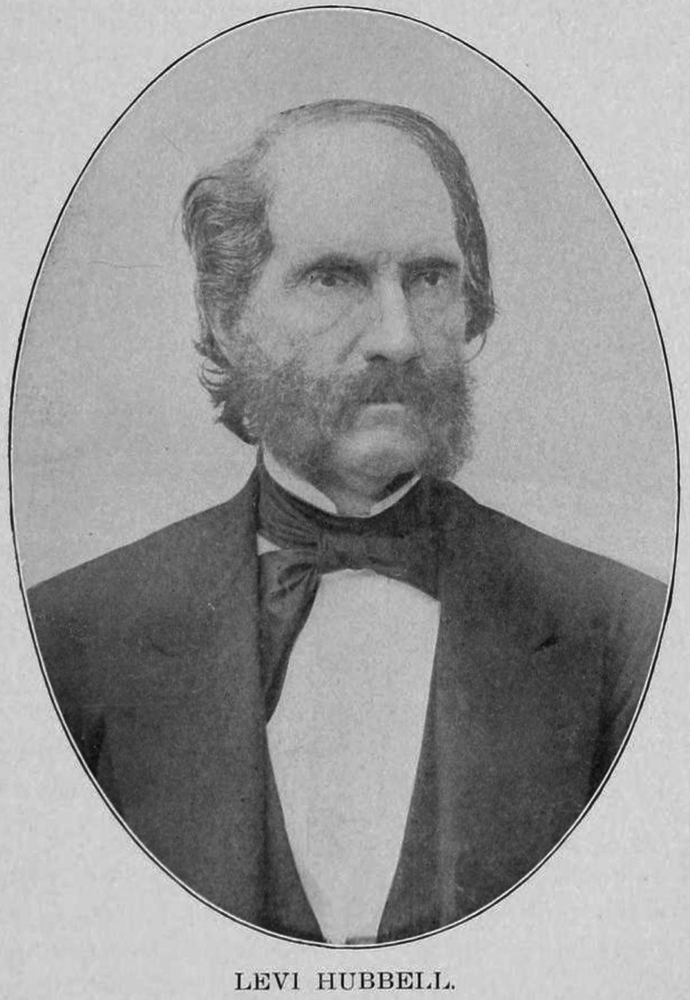
Only one judge in Wisconsin history has faced an impeachment trial: Levi Hubbell, who represented Wisconsin’s 2nd Judicial Circuit. The Senate ultimately acquitted Hubbell in 1853. (Credit: Wikimedia Commons)
Four years after arriving in Milwaukee from New York, Hubbell — an opportunistic politician who drew the suspicions of Milwaukee’s political establishment by successfully courting German Catholic and the Irish votes — was elected circuit court judge in 1848, the same year Wisconsin became a state, according to a 1998 Marquette Law Review essay by historian Ellen Langill.
Commentators at the time decried how the state’s first supposedly nonpartisan race had become “clandestinely partisan,” Langill wrote.
Hubbell served on the first Wisconsin Supreme Court as part of his circuit court duties. He became chief justice in 1851 before the separately constituted Supreme Court was established in 1853.
That same year he was accused of a variety of charges, including handing out arbitrary sentences, misusing funds, accepting bribes and hearing cases in circuit court for which he had a financial interest. Some discussion unfolded about removing Hubbell through the address process, which would not require a trial, but Hubbell asked for a Senate trial.
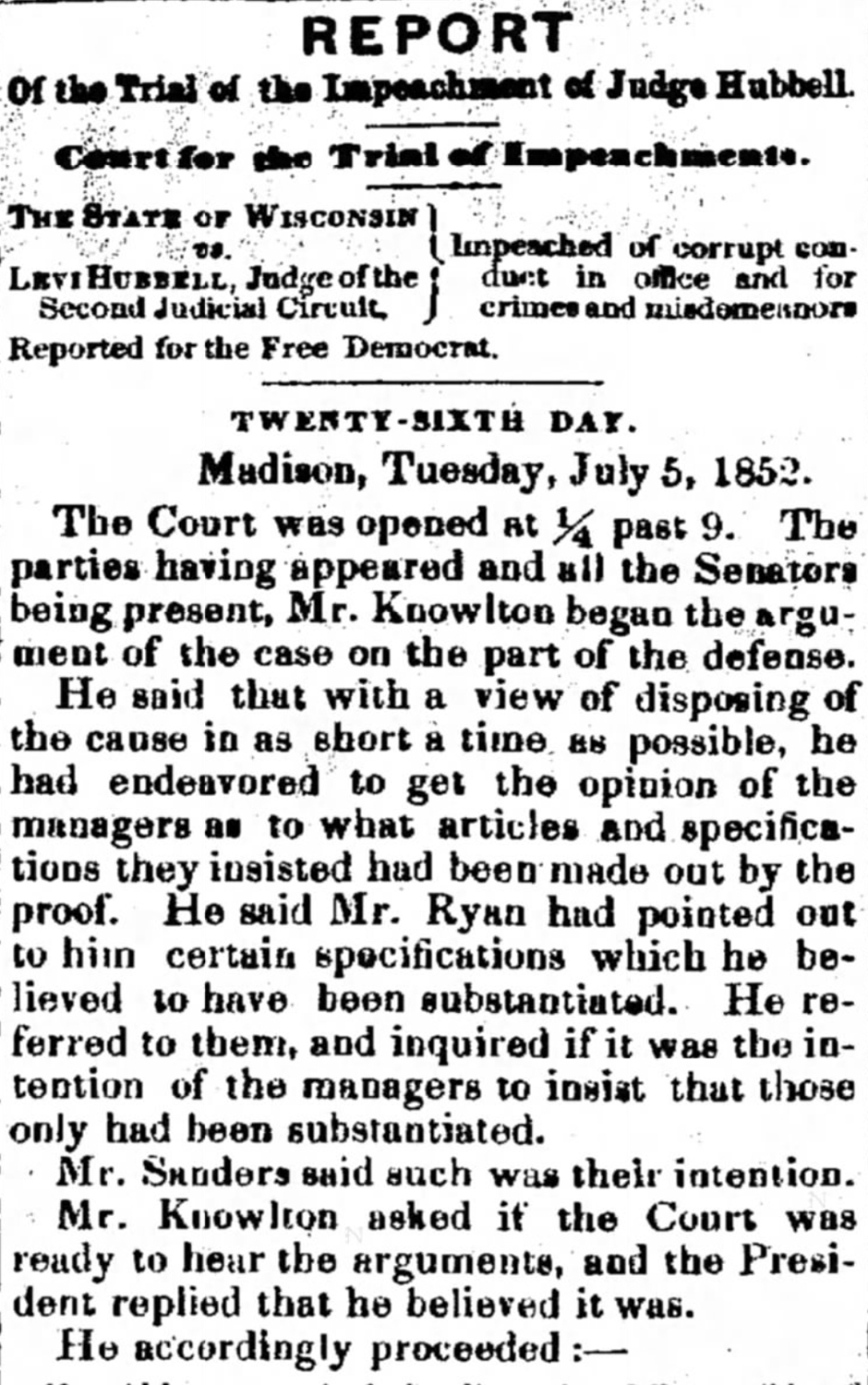
This July 7, 1852 clipping from Milwaukee’s “Daily Free Democrat” show reporting about the impeachment trial of Judge Levi Hubbell, who presided over Wisconsin’s 2nd Judicial Circuit. The Senate ultimately acquitted Hubbell, the only judge in state history to face impeachment. (Credit: Daily Free Democrat)
The Assembly impeached him, but the Senate ultimately acquitted him.
“The vote to acquit Hubbell sent shock waves across the Second Circuit,” Langill wrote. “Many of his partisans and Democrats rejoiced at the news, while many judges and attorneys reacted with dismay and disbelief.”
The nonprofit Wisconsin Watch collaborates with WPR, PBS Wisconsin, other news media and the University of Wisconsin-Madison School of Journalism and Mass Communication. All works created, published, posted or disseminated by Wisconsin Watch do not necessarily reflect the views or opinions of UW-Madison or any of its affiliates.
 Passport
Passport




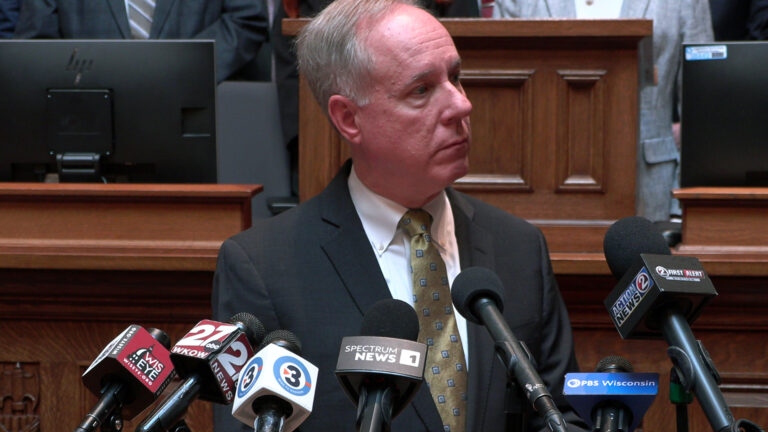

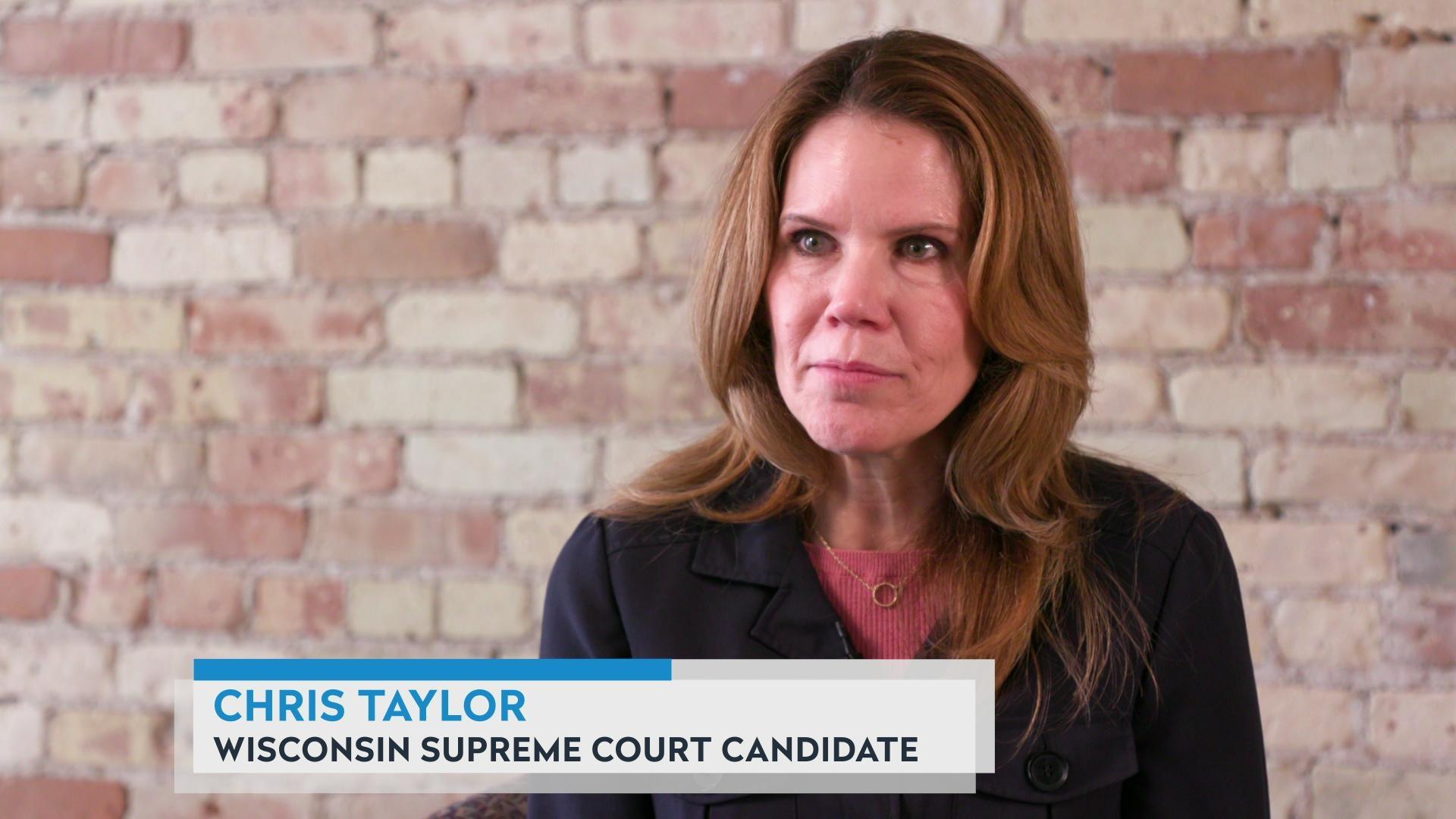
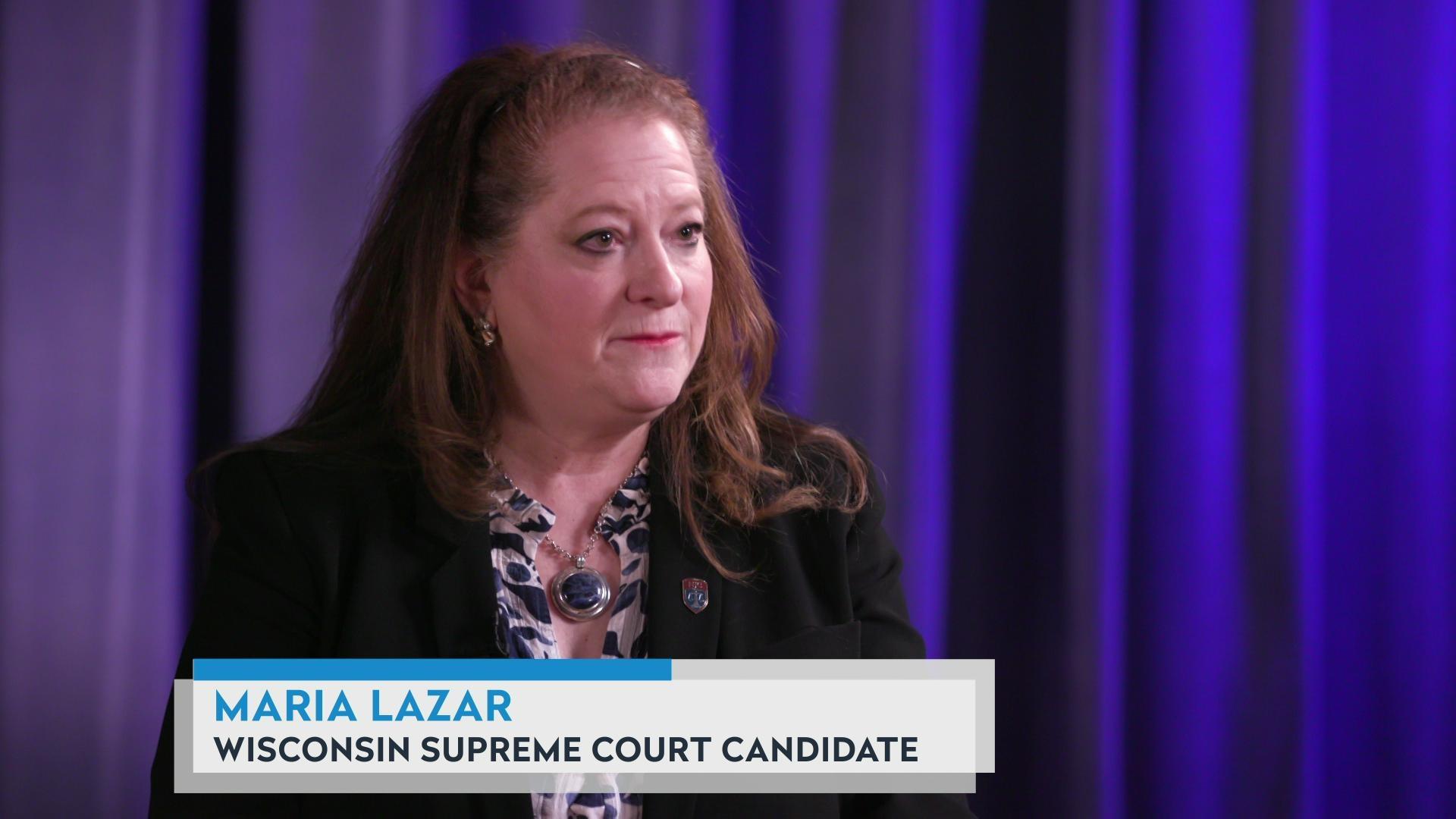
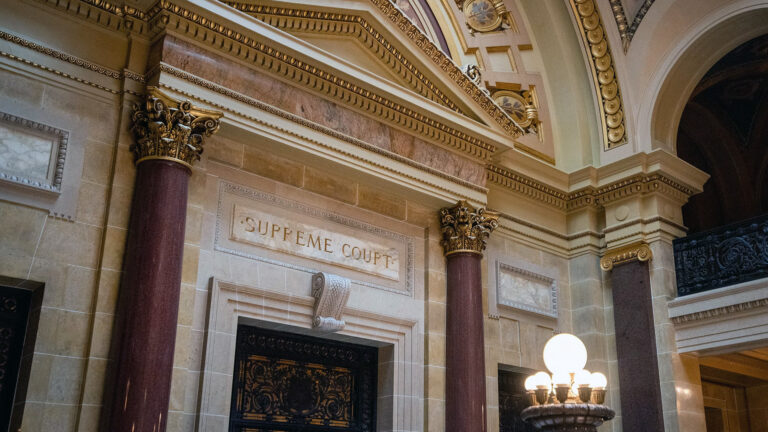


Follow Us